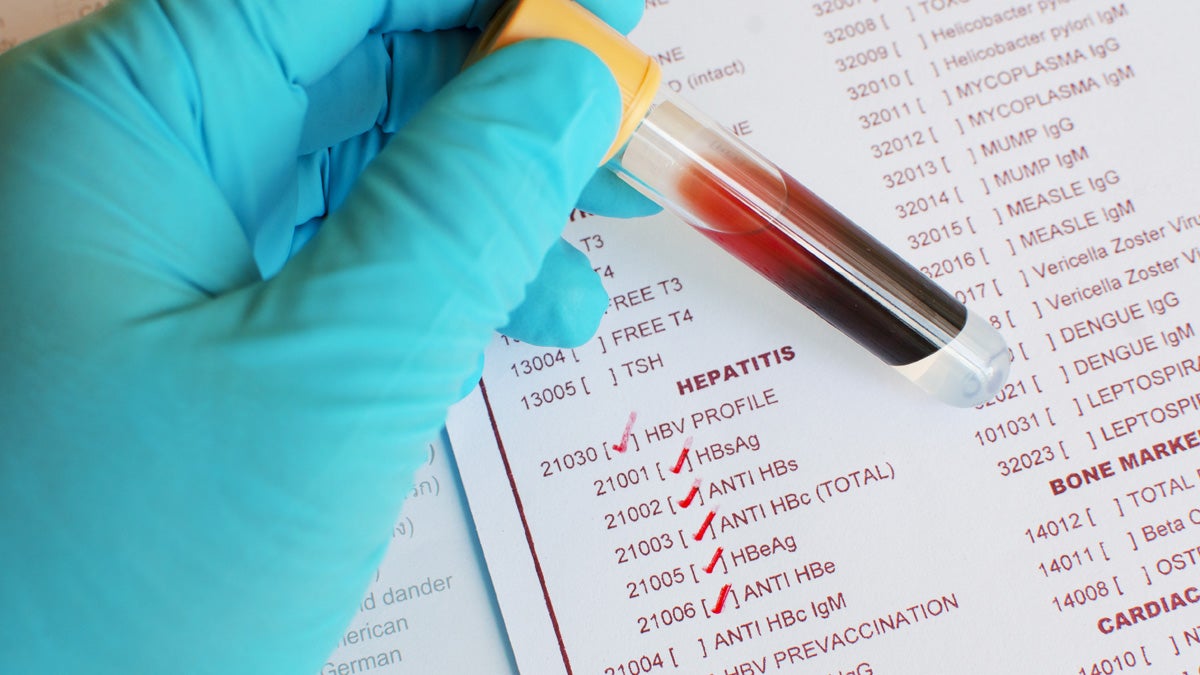Study: heroin use is spreading Hepatitis C more widely

(
The growing heroin epidemic nationwide has public health officials in New Jersey worried again — and this time, it’s for a new reason. A new study says a there’s new public health emergency developing in New Jersey suburbs: a Hepatitis C outbreak.
This study confirms what psychiatrists in addiction treatment centers have long suspected — as more youth inject heroin, the Hepatitis C virus will spread more broadly. The study was conducted by Dr. Ronald Nahass, an infectious diseases specialist, and a team of psychiatrists at Princeton House, which runs mental health and substance abuse treatment centers in New Jersey.
Over a ten-month period, more than 850 suburban heroin users were admitted to Princeton House’s inpatient facility. At the hospital, 44 percent tested positive for Hepatitis C. And almost two-thirds were younger than 35.
One of the study’s co-authors is Dr. Neal Schofield, the Chairman of the Department of Psychiatry at Princeton House Behavioral Health. He says almost 70 percent of addicts in New Jersey are intravenous users.
He says the heroin epidemic reminds him of the “cheese” outbreak among kids and adolescents in Dallas, Texas several years ago.
“They had kids who were eight and nine years old who were shooting that stuff. I don’t think it’s as young as that here, but I also don’t think it’s exclusively 17- and 16-year-olds. We’ve seen a lot of young people that come in our Young Adult Unit who are in their early twenties, and they’ve been using that stuff for eight years. So you do the math. I mean, they’re 12, 13 years old when they start using this stuff,” he said.
He says young people who are “opiate naïve” experiment with prescription painkillers from medicine cabinets. Then, they switch to smoking or snorting heroin. Soon, they’re addicted and begin injecting the drug.
“With alcoholism, there’s a genetic component. But with heroin — I can make anybody’s kid a heroin addict. It doesn’t matter what the genetic risk is. Anybody’s kid. Anybody’s kid. And that’s the thing — it’s like, you don’t know who’s going to get hit with this,” he said.
The Princeton community is trying to do just that. In November, Princeton Police Chief Nicholas Sutter called the rising rate of heroin use an “epidemic.” In the past year, 5 people in the Princeton area overdosed on heroin. One was fatal.
Last year, Dr. Schofield expanded an inpatient program for young addicts, ages 18 to 24.
In the Princeton House study, none of the patients who tested positive for Hepatitis C also tested positive for HIV. But public health officials worry a rising HIV rate could be on the horizon.
WHYY is your source for fact-based, in-depth journalism and information. As a nonprofit organization, we rely on financial support from readers like you. Please give today.





